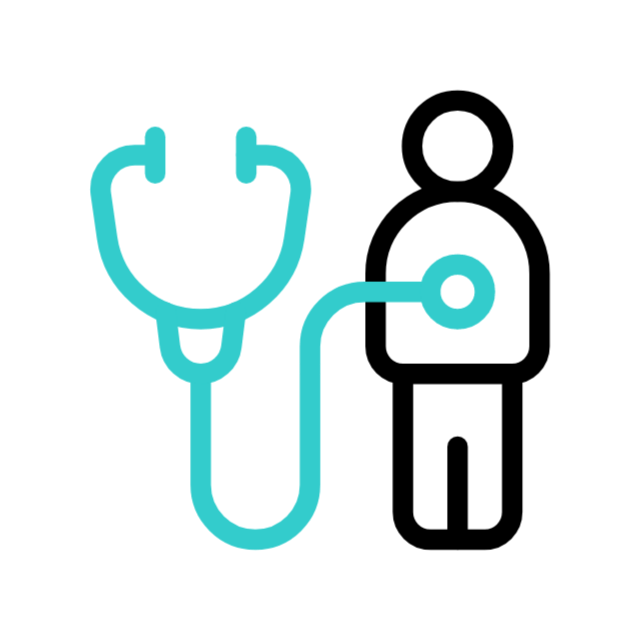Urology

Male and female urinary tracts
The urinary system has male and female urinary tracts, which produce, store and discard urine. Although they have the same fundamental functions, some crucial anatomical differences occur. The male urinary system comprises the kidneys, ureters, bladder and a longer urethra going through the penis. The urinary tract in females is similar to that of males, except that the length of the urethra is much shorter. Females are also more prone to urinary tract infections due to such differences in anatomy, especially urethral length.
Indications
- Burning sensation: Painful urination, or dysuria, is a common sign of urinary tract infections (UTI).
- Frequent Urination: A UTI or an overactive bladder may present itself through the necessity to urinate more frequently than usual, even with the feeling of urgency.
- Blood in Urine: The presence of blood in urine, otherwise called hematuria, may imply an infection, kidney stones or a severe and malignant disorder such as a tumour.
Effects
- Infection: A Female's shorter urethra makes it more possible for bacteria to access the bladder, causing UTIs more often.
- Kidney Injury: If a urinary tract infection is not addressed on time, it may spread to the kidneys and cause a severe illness that may cause permanent damage.
- Pain and Discomfort: An example is the kidney stones or a swollen bladder, which can result in excruciating pain, severe discomfort and a considerable decline in the lifestyle of an individual.
Bladder issues
Bladder conditions refer to several conditions manifesting in the urinary bladder, a hollow and muscular organ that stores urine before evacuation. These may be due to infections, inflammations, nerve and structural defects. The bladder is an essential element of the urinary system, and if a person has problems with their bladder, it may seriously influence the quality of life.
Signs of Bladder Problems
- Urinary Tract Infection (UTI): The necessity of urination, pain in the burning urine, as well as cloudy or bloody urine, are typical symptoms of a urinary tract infection, which is one of the most common bladder problems.
- Overactive Bladder: A sudden and sudden urge to urinate, which might be hard to control, is one of the main indications of the overactive bladder.
- Incontinence: A bladder problem will reveal itself in the form of involuntary urine leakage, whether it is the result of a poorly tightened pelvic floor region or an overactive bladder.
Consequences of Bladder Problems
- Pain and Discomfort: UTI and interstitial cystitis are some of the bladder conditions that lead to intense pain and discomfort below the abdomen or pelvis.
- Disturbed Normal Life: The daily routine of life gets interrupted due to the frequent operations related to the bladder at the expense of sleep, work or social life. This may be a great source of psychological disturbance.
- Kidney Damage Risk: An untreated bladder infection may reach the kidneys and create a severe illness, developing into longer-term damage.
Kidney Issues
Renal diseases, also called kidney diseases, are a group of disorders that can impact the kidneys. They are a pair of bean-shaped organs that remove waste products, water, and salt levels too high in the bloodstream. They are crucial in keeping the body's fluid and blood pressure balanced and producing red blood cells. Once the kidneys become damaged, they fail to do these functions, and the human body accumulates waste, leading to several health complications.
Signs of Kidney Problems
- Alterations in Urination: Alterations in urination are the most prevalent symptom, including alterations in the volume and appearance of Urine. This may be passage of urine more frequently or less frequently, impurity of urine, foam in the urine and/or blood in the urine (hematuria).
- Swelling (Oedema): Swelling may be caused by the kidneys failing to eliminate unnecessary bodily fluids, which causes fluids to be retained. This tends to induce swelling, especially on the legs, ankles, feet, and eye regions.
- Fatigue and Weakness: When the body has accumulated waste products in the blood, it can cause an individual to be unable to concentrate, feel weak and even experience fatigue. The kidneys also manufacture a hormone that facilitates the formation of red blood cells, which may cause anaemia when insufficient.
Effects of Kidney Problems
- Kidney Failure: The ultimate consequence is total failure of the kidneys, called kidney failure or End-Stage Renal Disease (ESRD). This necessitates dialysis or transplantation of a kidney to keep the person alive.
- Cardiovascular Disease: Heart disease is one of the main risks of kidney disease—increased pressure on blood and fluid accumulation and alterations of mineral balance strain the heart and vessels.
- Anaemia and Bone Disease: The kidneys make a substance known as erythropoietin, which stimulates the production of red blood cells. Deficiency of this hormone results in anaemia that brings about a lack of energy and exhaustion. They also assist with calcium and phosphorus levels; a kidney problem may cause brittle bones and greater bone fracture risks.
Ureter and Urethra issues
The ureters and the urethra are two of the significant components of the urinary system, where the ureters are the tubes through which urine flows out of the kidneys to the bladder, and the urethra is the tube through which urine passes to the bladder before being released outside the body. A problem in either may impair the urine flow and lead to numerous symptoms.
Symptoms of Ureter and Urethra Problems
- Pain and Straining to Urinate: Burning or pain with urination is a classic symptom of a problem in the urethra, e.g. infection (urethritis). Equally, a ureter blockage may result in intense, acute pain in the side or lower back (which may be described as being in waves) owing to urine backing up on the kidney.
- Urinary changes: The appearance of blood in the urine (hematuria), cloudy urine or a weak or slow urine flow may be a sign of trouble. As a result of a urethral stricture (narrowing of the urethra), one may experience a weak stream, and blood may indicate a kidney or ureter stone or an infection.
- Urgent and Frequent Urination: The desire to urinate continuously regardless of the level of fullness in the bladder is another hallmark of a bladder/urethra problem, i.e., a urinary tract infection.
Results of Ureter and Urethra Problems
- Damaging the Kidneys: The utmost impact of ureter blockage is kidney damage. Pressure accumulation in the kidney occurs when a stone or a tumour blocks a ureter, hindering the outflow of urine. This may cause swelling, and if it is not treated, it may cause irreversible kidney damage or even kidney failure.
- Infection: Both infections may occur in the ureter or urethra. Urethral infection may proceed into the bladder and, in severe cases, up the ureters to the kidneys, leading to a kidney infection.
- Urinary Retention: A urethral stricture may make urination painful or even impossible, an outcome known as urinary retention. This may result in extreme pain and inflammation of the bladder, and in the event of failure to treat it quickly, kidney damage may occur.
Adrenal gland issues
Adrenal glands are two small triangular glands that sit above each kidney. They form an essential component of the endocrine system, synthesising hormones that control metabolism, blood pressure, the immune system, and the body's reaction to stress. Improper functioning of the adrenal glands through their excessive or insufficient production of these hormones may result in several severe health problems.
Symptoms of Adrenal Gland Problems
- Severe Fatigue and Flabbiness: One of the main signs of adrenal insufficiency or the inability of the glands to secrete adequate amounts of hormones is continuous and unreasonable exhaustion and flabbiness. It comes with low blood pressure, inability to eat and weight loss.
- High Blood Pressure and Weight Gain: On the other hand, a condition known as Cushing syndrome, which is caused by overproduction of cortisol, is also accompanied by weight gain, especially on the face, neck, and upper body. This is usually accompanied by high blood pressure, thin skin and a round, moon face.
- Anxiety and Heart Palpitations: There is a rare condition known as pheochromocytoma, a tumour that occurs in the adrenal gland and is characterised by high blood pressure, rapid heartbeat, severe headache, and anxious or panicky feelings.
Effects of Adrenal Gland Problems
- Hormonal Imbalance- A severe hormonal imbalance is the most significant impact. This may contribute to many systemic problems, including impaired metabolism, a compromised immune system, and blood sugar levels.
- Cardiovascular Problems: Certain complications, such as Cushing syndrome and pheochromocytoma, may result in abnormally high blood pressure levels, which makes a person extremely exposed to heart attack and stroke.
- Adrenal Crisis: Adrenal insufficiency may have a life-threatening effect known as an adrenal crisis in which the body fails to produce sufficient cortisol to respond to a significant stressor, such as surgery or a severe infection. This may cause shock, a decrease in blood pressure, and death if no immediate treatment is provided.


 Insurance
Insurance Health Packages
Health Packages

